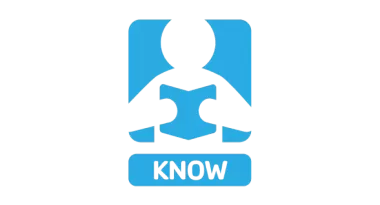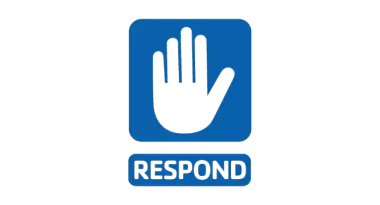The safety and well-being of children in the care of Ys across the U.S. is, and always will be, our priority.
Serving the youth in our community is a vital part of our mission, and we are committed to creating a safe environment for the thousands of children and teens we serve every year.
As the nation's largest youth-serving organization, our most important work includes ensuring their safety and well-being — it is foundational to everything we do at the Y to help them learn, grow and thrive.
|
Supporting Resources for Parents/Guardians |
|
|---|---|
| 1. | A Message from our President |
| 2. | KNOW How Abuse Happens |
| 3. | SEE The Warning Signs of Abuse |
| 4. | RESPOND Quickly to Prevent Child Abuse |
| 5. | Be Proactive |
| 6. | Internet Rules |
| 7. | Positive Protective Experiences |
| 8. | Spot the Types of Child Abuse |
"The Gateway Region YMCA's top priority is the safety of the youth in our programs and services. As a parent and grandparent, as well as a YMCA employee for more than 30 years, I understand the importance of delivering upon this promise and the great responsibility involved in doing so. I, along with my team, take this responsibility very seriously."
Thank you for doing your part to help protect children in our community.
Tim Helm
President and CEO, Gateway Region YMCA
Our Commitment at the Y
At the Y, we take the following actions to help keep kids safe in our facilities and programs:
All Ys in the U.S. are required to implement child sexual abuse prevention practices and policies to remain a member in good standing with the National Council of YMCAs. These requirements include:
- Completing a child abuse prevention self-assessment, administered by a Y-USA–approved vendor, at least every two (2) years
- Having a policy that requires criminal background checks for staff and volunteers
- Providing and requiring training for staff and volunteers on preventing and responding to child abuse
- Requiring staff and volunteers to report child abuse in accordance with applicable laws
- Having a policy that requires screening all adults against a national sex offender registry and written protocol for how to respond when adults are identified as registered sex offenders
- Reporting the following events to Y-USA:
- Allegations and/or criminal charges of child abuse, child sexual exploitation, or child sexual misconduct involving a current or former YMCA staff, volunteer, or member (including incidents related to the YMCA and outside of the YMCA)
- Allegations of sexual abuse, sexual exploitation, or sexual misconduct between youth participants in attendance at a YMCA and/or enrolled in YMCA activities.
YMCAs have access to resources to assist them in meeting these requirements. Provided by and facilitated by Y-USA, these resources are accessible through our internal knowledge-sharing platform for YMCA staff.
We engage external experts (Praesidium) in abuse prevention to work with all 2,600 Ys across the country and provide access to a comprehensive self-assessment as well as best practices in screening, training, supervision and reporting practices.
We partner with passionate local Y leaders who facilitate peer-to-peer learning and continuously improve and strengthen Y abuse-prevention efforts. Specifically, we work alongside the Guardians for Child Protection, a collective of Y CEOs committed to activating the power of the Y and other youth-serving organizations to engage communities, improve internal operations and advance policy and environmental change to protect children from sexual abuse.
We work closely with strategic partners to advance federal policies that seek to protect children from various forms of abuse and neglect. Whether it’s passing the Child Protection Improvements Act (CPIA) into law or increasing funding for the Child Abuse Prevention and Treatment Act (CAPTA), our advocacy efforts reflect the Y’s commitment to child safety.
If we don’t understand child sexual abuse, we can’t end it. We KNOW today that:
- One in ten children will be sexually abused before their 18th birthday.
- 90% of child sexual abuse victims know their abuser.
- Approximately 30% of children who are sexually abused are abused by family members.
- 60% of child sexual abuse victims never tell anyone.
- False reports are rare. Research shows that only 4 to 8% of child sexual abuse reports are fabricated.
KNOW how to recognize boundary violations and how offenders operate. Teaching children about their bodies, recognizing warning signs, and responding to any concerns are important first steps. Even very young children can learn some skills to help keep themselves safe from sexual abuse, but it’s up to parents to help them learn what they need to KNOW.
The above statistics provided by Darkness to Light.
— —
Important things you can teach that will help you help your child stay safe
Preschoolers understand the idea of rules, such as rules about playing nicely with others and rules about being safe, like wearing seat belts. So as you teach these rules, just add rules about touching their bodies.
First, talk to your child about body parts, including private parts. This will give your child words to use when he/she needs to tell you anything about his/her body, like an injury or rash or other problem in that area.
Then add rules about private parts, like "Never let other people touch your private parts unless Mommy or Daddy knows about it." Children also need to know what to do when someone breaks the rules about touching.
Teach children:
- What to say to someone who breaks the rules about touching
- To move away from someone who is breaking the rules about touching
- To tell you or another adult if someone breaks the rules about touching
- Phrases so he/she can tell others to stop and practice saying them with your child
- Teach your child to say this to anyone who invades their privacy (other children as well as to adults)
- To move away from anyone who is breaking the rules about touching
- Tell your child that it’s ok to get out of someone’s lap or pull away from a hug, even if an adult asks them not to
- To tell you or another adult, like a teacher or caregiver, if someone breaks the rules about touching them
SEE the Warning Signs
How to recognize if a child is in danger
Always keep your eyes and ears open for signs of abuse, listed below.
If something is wrong, you may SEE a sudden change in your child’s behavior, or you may hear unusual comments.
If you SEE or hear these things, follow up. Find a relaxed time to talk with your child, asking them about your concerns.
Here are some signs to look for:
- Unkempt or malnourished appearance
- Unexplained bruises, welts, or burns
- Disturbed sleeping or eating patterns
- Abrupt changes in behavior, anxiety, clinging, aggressiveness, or withdrawal
- Sexually transmitted diseases & infections
- Discomfort with physical contact
- Fear of a certain person or place
- Fearfulness or depression
— —
How to recognize if an adult is a danger to a child
Offenders often operate through a process called "grooming." Child grooming is the deliberate process of gradually initiating and maintaining a sexual relationship with victims in secrecy. Grooming allows offenders to slowly overcome boundaries long before sexual abuse occurs. On the surface, grooming a child can look like a close relationship between the offending adult, the targeted child and (potentially) the child’s caregivers. The grooming process is often misleading because the offender may be well-known or highly regarded in the community. As a result, it’s easy to trust them.
Examples of red flag behaviors:
- Pressing boundaries or breaking the rules to give a child special attention
- Giving inappropriate physical affection
- Sympathetic listening that starts to build barriers between a child and their parents or friends
- Offers to help the family in order to gain alone time with a child
- Gaining access to a child via the internet
If you see warning signs from your child or an adult, or you hear about something that sounds like abuse, RESPOND by reporting it immediately.
How to react if your child tells you about sexual abuse or inappropriate behavior
Your response plays a big role in how your child understands abuse and how he/she recovers.
- Give attention, compassion, and belief.
- Listen calmly and openly.
- Don't fill in gaps.
- Don't ask leading questions about the details.
- Ask open-ended questions like, "what happened next?"
- Don't overreact.
- Say, "I believe you" and "what happened is not your fault."
— —
What to do if you believe a child is being abused
You do not need to have proof that abuse is occurring to make a report, only reasonable suspicion. Reasonable suspicion means that you have witnessed maltreatment or boundary violations, either in the child or adult, or both. Or, you have received a disclosure from a child about abuse, neglect, or boundary violations towards them.
FILE A REPORT
Child sexual abuse reports should be made to the police and/or state child protective services. In Illinois, report online here or call 1-800-252-2873. In Missouri, report online here or call 1-800-392-3738.
SEEK ASSISTANCE
Contact the Darkness to Light helpline at 1.866.FOR.LIGHT (1.866.367.54448) or text LIGHT to 741741 to have questions answered by trained counselors at no charge.
Our Certified Praesidium Guardians
laurie.mctearnen@gwrymca.org
314-436-1177
matt.clark@gwrymca.org
314-849-9622
deb.tallo@gwrymca.org
314-436-1177
dan.schulze@gwrymca.org
314-436-1177
sarah.rhodebeck@gwrymca.org
314-436-1177
shelly.norkaitis@gwrymca.org
314-436-1177
erin.sullivan@gwrymca.org
888-386-9622
rylee.miller@gwrymca.org
314-436-1177
Exciting News!
The Gateway Region YMCA has been awarded Praesidium Accreditation® by Praesidium, the leader in abuse risk management. Praesidium Accreditation® is a prestigious honor that publicly demonstrates the organization has worked to achieve the highest industry standards in abuse prevention.


